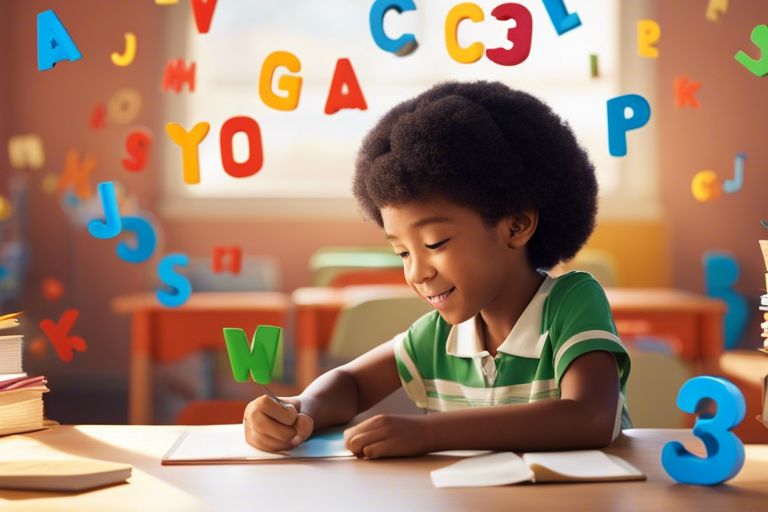Phonics is a fundamental skill that lays the foundation for early reading success in young children. Understanding the relationship between sounds and letters is crucial for decoding words and developing fluency in reading. Research has shown that children who learn phonics are more likely to become proficient readers, leading to improved academic outcomes and a lifelong love of reading. Without a strong phonics foundation, children may struggle with spelling, vocabulary, and comprehension, which can have negative consequences on their overall educational progress. Therefore, incorporating phonics instruction in early childhood education is important for building strong literacy skills and setting children up for success in school and beyond.
Key Takeaways:
- Phonics is fundamental for early reading success as it helps children decode and sound out words.
- Understanding letter-sound relationships through phonics enables children to become independent readers and improve their spelling skills.
- Phonics instruction should be systematic and explicit to provide a solid foundation for reading and writing.
- Research shows that phonics-based teaching methods are highly effective in improving literacy outcomes for young learners.
- Early exposure to phonics can boost children’s confidence, fluency, and comprehension skills in reading.
Understanding Phonics
Defining Phonics and its Key Components
Phonics is a method of teaching reading and writing that focuses on the relationship between sounds and the letters that represent them. The key components of phonics encompass understanding that letters are associated with sounds, learning phoneme-grapheme correspondences, and applying this knowledge to decode words.
Understanding phonics is crucial because it provides young learners with the foundational skills needed to decode unfamiliar words independently. By grasping the connection between sounds and letters, children can improve their reading fluency and comprehension as they progress through different text levels.
The Relationship Between Phonics and Literacy Development
Phonics plays a fundamental role in literacy development as it helps children recognise and manipulate the sounds of spoken language. This, in turn, strengthens their ability to decode written words and enhances their overall reading and writing proficiency.
Research has shown that incorporating phonics instruction in early literacy programmes leads to significant improvements in reading accuracy and comprehension. By systematically teaching phonics, educators empower young learners to become proficient readers who are equipped with imperative decoding skills.
Phonics Instruction Strategies
Concerning teaching early reading skills, phonics instruction plays a crucial role in laying a strong foundation for children. Phonics focuses on the relationship between sounds and their spellings, helping young learners decode words efficiently. To ensure early reading success, educators must employ effective phonics teaching techniques and integrate phonics into daily learning activities.
Effective Phonics Teaching Techniques
Effective phonics teaching techniques involve systematic and explicit instruction. Teachers should follow a structured programme that introduces letter sounds and blends gradually, allowing students to build upon their knowledge. It is imperative to provide ample opportunities for practice through activities such as sounding out words, blending sounds together, and segmenting words into their individual sounds. Engaging students with multisensory activities, such as using manipulatives, songs, and games, can also enhance their phonics learning experience.
Incorporating Phonics into Daily Learning Activities
Incorporating phonics into daily learning activities reinforces students’ understanding of sound-symbol relationships and promotes the application of phonics skills in real-life contexts. Teachers can incorporate phonics into reading sessions, word building exercises, and even outdoor activities to make learning interactive and engaging. By weaving phonics into various subjects like literacy, science, or art, educators can show students the practicality and relevance of phonics in their daily lives.
Furthermore, encouraging parents to reinforce phonics learning at home through activities like reading aloud, playing word games, or practising rhyming words can significantly support children’s phonics development. Consistent exposure to phonics both at school and home creates a well-rounded learning environment that strengthens early reading skills.
The Benefits of Phonics for Young Learners
Phonics instruction plays a crucial role in the early literacy development of young learners. It provides them with the necessary tools to decode words and develop their reading skills effectively.
Enhancing Decoding Skills and Reading Fluency
Phonics helps young learners break down words into their individual sounds, making it easier for them to sound out unfamiliar words. This process enhances their decoding skills and improves their reading fluency, allowing them to read with more speed and accuracy.
By mastering phonics, children become more confident readers as they can tackle challenging texts independently. This increased confidence leads to a more enjoyable reading experience and motivates them to explore a wide range of books and materials.
Building a Foundation for Comprehension and Vocabulary Growth
Phonics instruction not only aids in decoding and fluency but also lays a strong foundation for comprehension and vocabulary growth. Understanding the relationship between letters and sounds helps children make sense of the text they are reading, improving their overall comprehension skills.
Moreover, phonics instruction introduces young learners to a wide range of vocabulary words as they learn to decode and spell new words phonetically. This exposure to diverse vocabulary at an early age sets the stage for expanded language development and improved communication skills.
Addressing Common Misconceptions About Phonics
Phonics is often misunderstood and misrepresented in the world of early education. One common misconception is that phonics is the only way to teach children to read. While phonics is an imperative part of learning to read, it is just one component of a comprehensive literacy programme. It is crucial to understand that phonics should be integrated into a balanced literacy approach, alongside other strategies such as whole language learning and guided reading.
Another misconception is that phonics is boring and repetitive for young learners. However, when taught correctly, phonics can be engaging and interactive, helping children to decode words and develop their reading skills. Providing engaging and hands-on phonics activities can make learning to read a fun and rewarding experience for children.
Clarifying the Role of Phonics in a Balanced Literacy Program
Phonics plays a vital role in a balanced literacy programme by providing children with the tools to decode words and build a strong foundation for reading. By combining phonics instruction with other literacy strategies, such as vocabulary development and comprehension skills, children are equipped with the necessary skills to become proficient readers.
A balanced literacy programme that incorporates phonics ensures that children receive a holistic approach to reading instruction, catering to the diverse learning styles and needs of all students.
Debunking Myths Surrounding Phonics Education
There are several myths surrounding phonics education, such as the belief that phonics is outdated and no longer relevant in today’s teaching practices. Contrary to this belief, phonics remains a crucial element in helping children learn to read and should not be overlooked or dismissed. Phonics provides the fundamental skills needed for reading success, and when taught effectively, can significantly improve a child’s literacy development.
By debunking these myths and highlighting the importance of phonics in early reading instruction, we can help educators and parents understand the significant role phonics plays in helping children become proficient readers.
Why Phonics Is Essential for Early Reading Success
Phonics is crucial for early reading success as it provides children with the necessary tools to decode and recognise words independently. By learning the relationship between sounds and letters, children can improve their reading fluency and comprehension. Phonics instruction helps children to break down unfamiliar words, build a strong foundation for spelling, and enhance their overall literacy skills. Research has consistently shown that a systematic phonics approach significantly improves reading abilities in young learners. Therefore, incorporating phonics into early literacy education is vital for laying the groundwork for proficient reading and academic achievement.
FAQ
Q: Why is phonics important for early reading success?
A: Phonics is crucial for early reading success as it helps children understand the relationship between letters and sounds, enabling them to decode words independently.
Q: How does phonics improve reading fluency?
A: Phonics enhances reading fluency by teaching children to recognise letter patterns and sound blends, making it easier for them to read words quickly and accurately.
Q: What are the benefits of using phonics in literacy instruction?
A: Using phonics in literacy instruction helps develop strong reading and spelling skills, improves vocabulary acquisition, and boosts overall reading comprehension.
Q: At what age should children start learning phonics?
A: Children can start learning phonics as early as 3 to 4 years old when they begin to show an interest in letters and sounds. However, it’s never too late to introduce phonics to older children who may be struggling with reading.
Q: How can parents support phonics development at home?
A: Parents can support phonics development at home by reading with their children regularly, practising letter-sound relationships, playing word games, and providing a print-rich environment to encourage literacy skills development.











